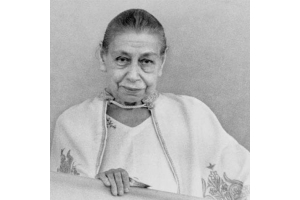Meditation Tutorial

Weare sharing some ideas, exercises and little challenges with you that we hope will be of help to you to stay calm and balanced as well as acknowledge your anxiety.
We are sending you hope and love.
Stay safe. Be well. Flood your Being with Light and Truth.
- Start small
Meditating is very easy. When you give peace to your mind you manage to put situations in perspective, and you are able to enjoy things more. For that one doesn’t need to sit for hours with closed eyes on a pillow: If you start to listen to your breath for five minutes every day (instead of the thoughts in your head) it will be enough to feel calmer during your daily routine. It’s not necessary to make it an action, something you have to do every day with pressure. - Follow your breathing
Breathing is a helpful tool to bring your attention to the here and now. Feel how your stomach and rib cage expands and how the breath flows in and out of your mouth and nostrils. Follow the exhale and consciously feel how your stomach and rib cage go down. If you want you can also count your breathing. - Concentrate on your feet
You can integrate your mediation into your every day life easily, for example during waiting in line at the supermarket. Simply bring all your attention to your feet. If you concentrate on your experience instead of your thoughts you will be calmer. Your pulse will slow down and your adrenaline will go down. This is a simple and fast way to cool down for a minute in between. - Simply sit
You don’t need a specific pillow or a mediation bench. It is enough to simply sit on a stool or your couch. Sit in an upright position, put both your feet on the ground, then the chances are lower that your mind will wander off. Look for a space to sit that is quiet and where chances are low that someone disturbs you. Put your phone on silent. You can keep your eyes open or closed, both works. - Thoughts will come and go
Of course there will be many thoughts passing through your head, sometimes even emotions will arise. They are simply a part of this. The goal is not to empty your head. As soon as you notice that your mind wanders off bring your attention back to your breath. It can be useful to give them little labels like shopping, work, judgement, meeting and so on before letting them go. If you don’t think your thoughts through they will disappear on their own. - Try it with a guide
Sometimes it can be helpful if someone guides you through the mediation. There are several useful podcasts and youtube channels. The most important thing for selecting the right guide is the voice, you should like it. We have collected some apps that we like. Send us a message and we will send you our list.
Meditation notes
A small exercise. Stop reading for a moment and close your eyes and focus on this very moment.
What you feel in your body?
How do you feel?
What do you smell? What do you hear?
Do not give any attention to your thoughts, but focus with all your senses on the here and now. Your thoughts will wander off on a certain point, that is normal, this is how our brain functions. At that moment when your thoughts come back pull your attention gently back to the here and now.
Note down what are the thoughts that came to you.
Was it more positive or negative thoughts?
Look at your thoughts more closely. Was there one thought for longer or did they come and go quickly? Were they just associating thoughts or were you captured in one worry? Were they sentences or pictures? Were these thoughts turning around a topic that are currently a big part of your life? Or thoughts of the past? Or plans for the future?
In what way do these thoughts influence your emotions?
Do these thoughts bring big tension to your body?
Thoughts often disappear if you bring the focus back on your breathing. You can control your thoughts in this case. What kind of feeling does this give to you?
How can you integrate this awareness in your current every day life? What could you do regularly to come back to the here and now? Maybe you can decide for certain times during your day like when you brush your teeth, while having your tea or as soon as you have a low point in your day to integrate this awareness.





